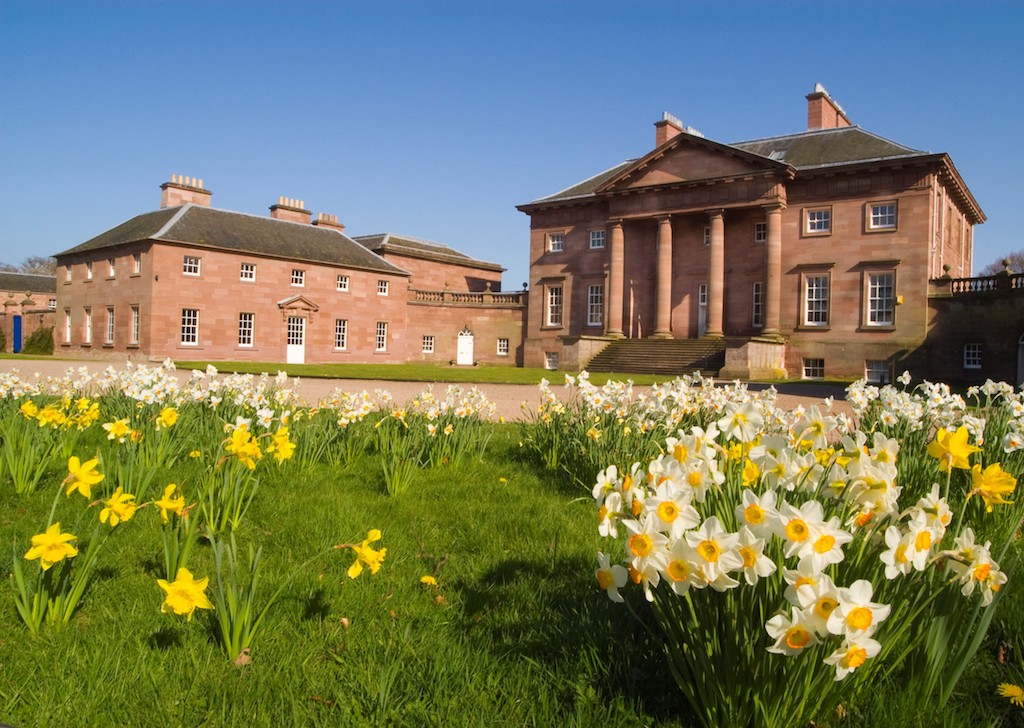World leading pianist Malcolm Martineau has played in Paris, Amsterdam, Munich, Vienna, Milan, Berlin, throughout the UK and in North America accompanying many of the world’s best singers.
Ahead of his performance at this year’s Music at Paxton – the Scottish chamber music festival in the Borders – Malcolm, from Edinburgh, talks to Scottish Field about his career.
You have played at most of the major concert halls around the world, how does an intimate setting like Paxton House compare with playing at Carnegie Hall?
Every venue has its own feeling and a space like Paxton is much more appropriate to the song repertoire than Carnegie Hall. The songs were written for a drawing room and it is great to have that contact with the audience.
When you are performing at Music at Paxton, will you have any time to enjoy the other performances or is that not how you choose to spend your free time in a packed musical calendar?
It is how I would normally choose to spend my time. I always try to go to an opera if I’m playing in an opera house but sadly this time I have no time to hear my colleagues.
You are performing at Paxton House with William Thomas; do you seek out specific collaborations or have you reached a point in your career where people solely come to you?
I always love to work with new people as well as my long term colleagues and it works both ways.

Paxton House
How much time do you spend practising?
I really love practising so I will spend as much time as I can at the piano, usually about three to four hours a day.
You have said how important it is to be able to physically sympathise with a singer by learning how to sing yourself. Do you only practice singing the sorts of pieces you would play professionally or do you have a wider vocal repertoire than that?
Yes, I think that it is important to physically empathise with the singer by knowing what it feels like to breathe, support and how the voice feels in your body. I am fascinated by singing in general. I do sing some of the songs I play and, particularly during lockdown, I had fun singing opera and oratorio as well, but purely for my own consumption.
How influential were your mother and aunt on your style and inspiration as a collaborative pianist?
I was incredibly lucky to hear my mother and my aunt play the piano and cello repertoire from the very beginning. They didn’t talk a lot in rehearsals but did a lot by the feeling of togetherness they had. I was always struck that two totally different personalities could make such unified music together, but that it was definitely two people playing the pieces, not a soloist and an accompanist. It was lovely to introduce my mum to the song repertoire. She had always been a pianist in instrumental chamber music so this was a new and exciting world to her. It also meant that we did the same thing but in different worlds.
As a choral scholar at Cambridge, you did a concert almost every night, how has the experience of being on stage changed after thousands of performances, is there any part of your performance that is affected by occasion?
I did play a lot of concerts in Cambridge but I never felt routine about any of them. There was always a buzz and it was always great to make music with my friends as an extension to our friendship. Of course there is a sense of occasion and always great privilege to perform on some of the great stages of the world, like La Scala and Carnegie Hall. I think it makes you play better, knowing that all these giants have been there before you.
You conduct yearly residential masterclasses for professional musicians on the west coast, these clearly benefit your students, do they help you too?
I learn a lot from the singers and pianists I teach. It’s great to hear their first reactions to pieces I have been playing for years and to enable them and give them the necessary technical tools to express what they feel. Essential to give back to this wonderful profession and to pass on the wisdom that our teachers and colleagues have given to us.
Your achievements are well known from, honorary doctorates to being made an OBE, what continues to motivate you with this level of success already achieved?
There are always new things to discover in the music and poetry of the songs and repertoire I play both technically and artistically. My mum was still interested and enquiring and still performing at 89 years old. She is my role model in this and many other things.
On Friday 28 July at 7.30pm, rising star William Thomas (bass) and peerless Scottish accompanist Malcolm Martineau perform a programme of romantic songs at the Music at Paxton festival in the Scottish Borders. Already taking the singing world by storm, having won the Kathleen Ferrier Award, William is joined by pianist Martineau, possibly the most sought-after recital partner working on the world stage today. www.musicatpaxton.co.uk
Read more news on Scottish Field’s news pages.
Plus, don’t miss the July issue of Scottish Field magazine.
TAGS

